
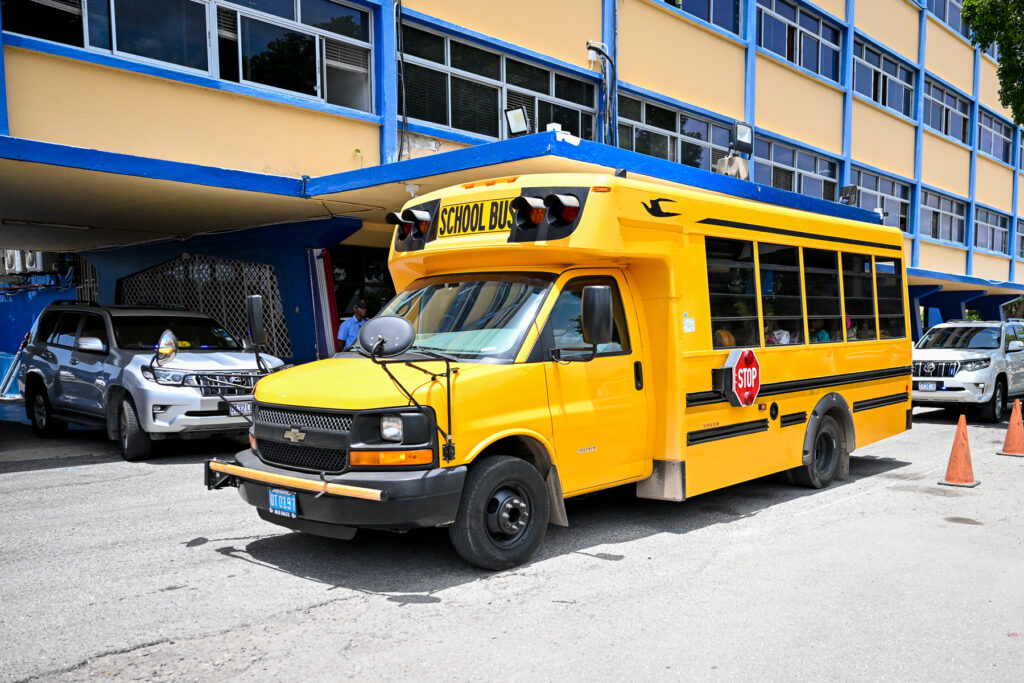
People often call the weeks or months before an election the ‘silly season’. Not in my book, though. It is actually the smart season, whereby you often get the best out of political parties, which go overboard in an effort to convince the electorate.
The acquisition of 110 old American left-hand drive buses intended to be used in the rural school transportation system has been one of those matters that continues to generate arguments and discussions about its pros and cons.
My own view is that it was a reckless decision to have bought the retired buses from the United States system, and dumped them on ‘Third World’ children, when there appeared to have been a viable alternative, which would cost the country less, and work out to be more efficient.
With controversy swirling, and Government and Opposition continuing to spar, in comes a shocking episode of the ongoing drama series – the ruling party, on a kind of road tour essentially, I suppose, to promote the buses as being worthy of transporting children, gave free rides to its supporters, who, without thinking, proceeded to wave green flags as if the buses had come in only for people who embraced that colour.
That was a humungous miscalculation by the JLP, for it reinforced a point initially raised by the Opposition, and echoed by Transport Minister Daryl Vaz, that too much partisan politics was behind the move, whichever angle you take it from.
Had there been people clad in other colours, it would not have been so bad.
Also, the misuse of some children, who were placed in one of the school buses in south Manchester and rehearsed to chant ‘We say showa, we say showa … vote for Labour, vote for Labour’ … led by a male cheerleader in a green shirt, was sickening.
Children should not be used in any instance to do the dirty work of adults, or even of other children. It should never happen again, and those who organised it should lower their heads in shame.
Interestingly, the minister of education was on that tour and did not lash out against the abuse of the children. But then, this is where we have reached when it comes to politics.
Holness and his booklets in Half-Way Tree
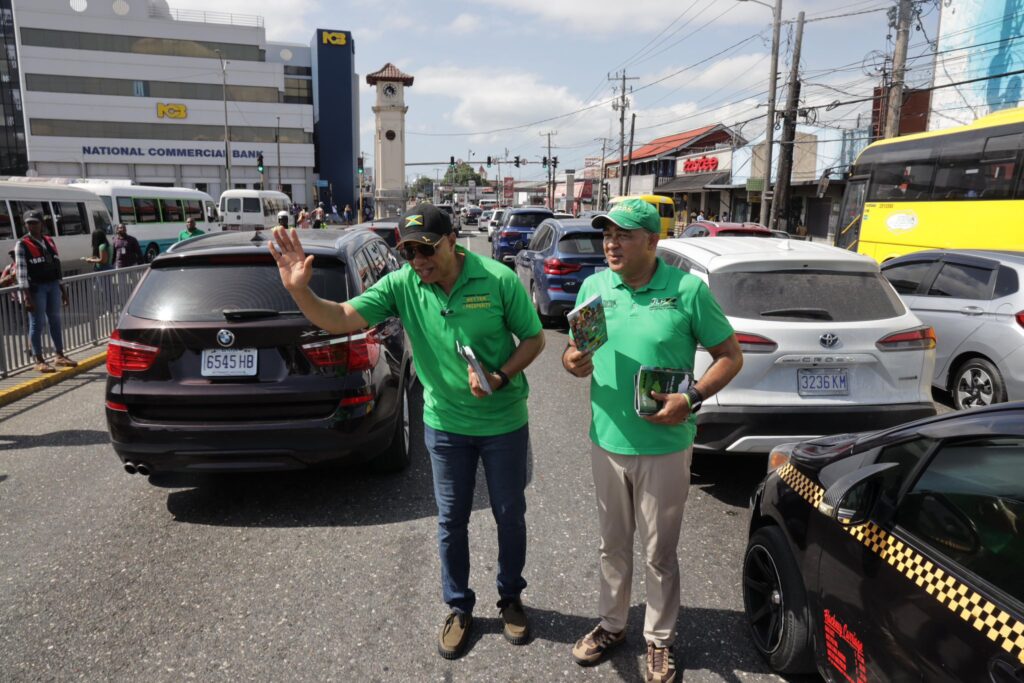
I had never before seen in my conscious lifetime, or heard stories told by elders of politics, a prime minister going into the middle of a busy thoroughfare and marketing the ruling party’s achievements by way of a booklet, heading into a general election.
It happened last week, with the star of the show being Prime Minister Andrew Holness, who decided to take his chronicles to the middle of Half-Way Tree, the capital of St Andrew parish.
Don’t mind the improper spelling of Jamaica on a section of the publication if you have a decent temperament; it was the sheer presence of the big man in town, Jamaica’s policy chief, roasting in the sun, that grabbed the headlines.
I never knew of the plan. So, when I got a call from a road hawk friend of mine, asking me where I was, he then said the PM was in the vicinity of the Half-Way-Tree Transportation Centre giving out the written ‘goodies’. Being nearby, I drove down to where the handing over ceremony was taking place, managed to ‘kotch’ at a convenient spot nearby, and placed myself in an advantageous position to see what was happening.
Well, the prime minister clearly felt at home, as he had none of his security personnel within touching distance of his newfound mission, and seemed comfortable that no one would try anything at him.
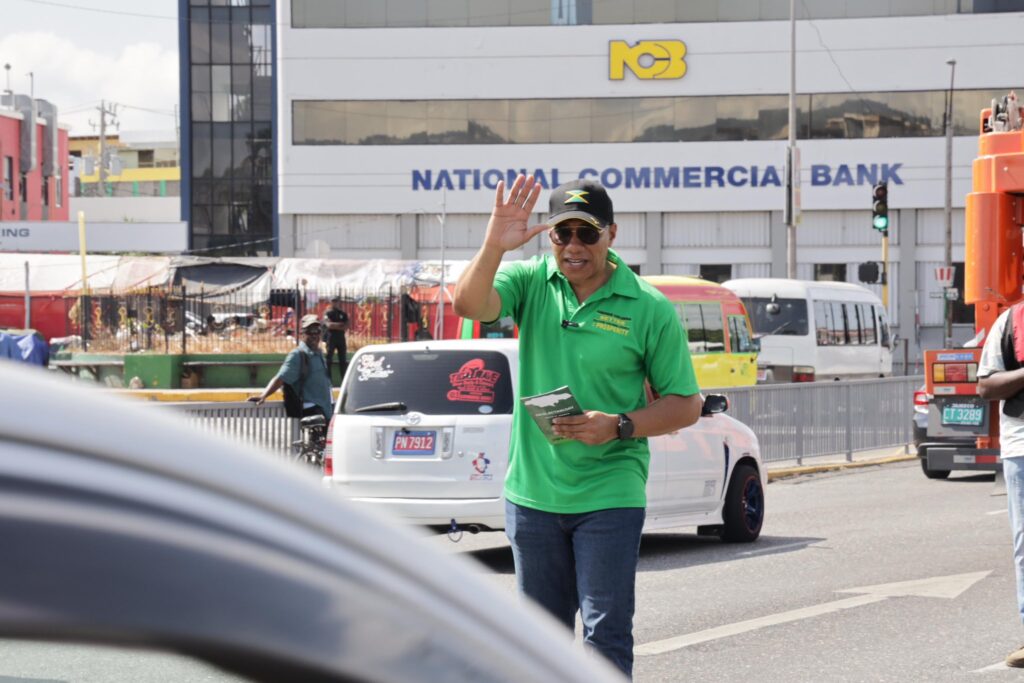
But what was quite noticeable was that while I was looking on, not one driver or passenger, stepped out of vehicles, and approach the prime minister for an embrace or chit chat. I found that to be quite odd, because if he were so popular, that was bound to happen.
Had it been Sir Alexander Bustamante, Michael Manley or Portia Simpson Miller, and I am even tempted to say Hugh Shearer, doing such a thing, Half-Way Tree would have been blocked within minutes. People from all over would force security personnel to suspend their break and spring into action to protect the country’s leader.
That, to me at any rate, is a clear indicator of how Holness’s popularity has nose-dived since 2016.
As for the deliverables outlined in the document, well, I have heard people suggesting that many of them are not real achievements, whatever that means.
There is a simple way to determine that, though: by comparing the Jamaica Labour Party’s manifestos of 2016 and 2020 with the booklet, and a clearer picture should be formed.

In the meantime, I continue the search for a printed copy of the Holness administration’s list of achievements.
More on the Cuban tourism revival
The eventful week-long tour of sections of Cuba by Jamaican travel agents and journalists recently, primarily to view that country’s tourism product and give an honest position on it, left some wide-eyed in amazement.
How could Cuba have been projected in such a light as we have been seeing over the years, as an island suffering from all sorts of things?
True, there are deep economic issues that have been hurting the land of 11 million inhabitants, which they blame mainly on the economic embargo imposed by the United States 63 years ago – one which has become the world’s longest against any state. But good things are happening too, and among the industries now showing promise is tourism.
“Then how they’re always saying these things about Cuba,” one travel agent said. “I can’t believe the things they have been teaching us about this place; yet, when you come here, it is a different thing altogether,” another first-time visitor to the Spanish-speaking island stated.
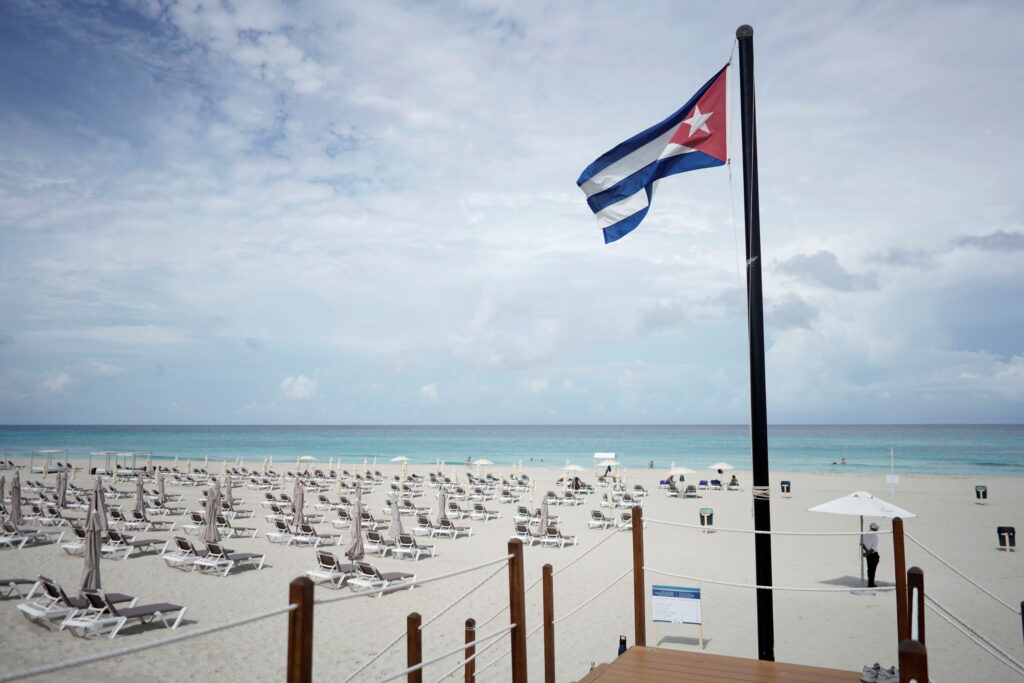
The impressive tourism industry, now preparing for its high season, which officially begins in October and ends in May, has targeted new arrivals from China, Russia, parts of Europe, Canada, and is sending a special message to the people of Jamaica and the Caribbean to join Cuba in getting a taste of its warm hospitality.
With packaged deals which authorities have deemed affordable to all, the island seems bent on making up for the shortfall in powerful industries of sugar and tobacco.
More private sector participation is seemingly helping to change the usual State-controlled entities dominating commerce, underscoring the need for an economy to have the right balance, and not a domination of one sector over the other.
Only this week, Cuba and Peru signed a memorandum of understanding on tourism cooperation – a further fillip for both nations, which will include the promotion of both destinations as fit for all categories of travellers.
No cheers for West Indies
Jason Holder might have taken some of the shame from the eyes of Cricket West Indies last Saturday night (August 2) in Fort Lauderdale, when the host team drew level with Pakistan in the ongoing T20 series.

Holder’s four for 19, unbeaten 16, which included a four off the last ball of the match, and two catches, snapped a series of nine home defeats in Test cricket and T20s over the last six weeks.
Some will now begin to say that the West Indies have ‘turned the corner’, but they didn’t know that the corner was extended, and the journey continues with the steering wheel still at an angle.
The two-wicket win over Pakistan was a boring contest, a low-scoring one with the visitors making 133 for nine, and the hosts responding with 135 for eight on a slow and low pitch.
It was good for the West Indies that Pakistan did not play their stars, as internal politics continue to dog that Asian country. I shudder to think what would have happened had achievers like Babar Azam and Mohammad Rizwan been around.
So, no one should be fooled into thinking that the West Indies are now on target again to head back into that consistent winning mode … not with the coaching and management systems still the same.



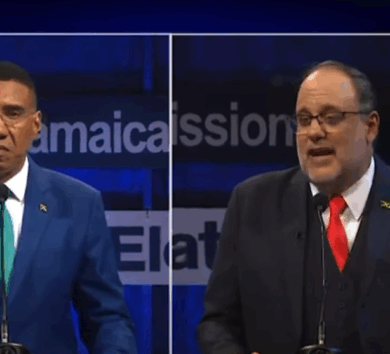

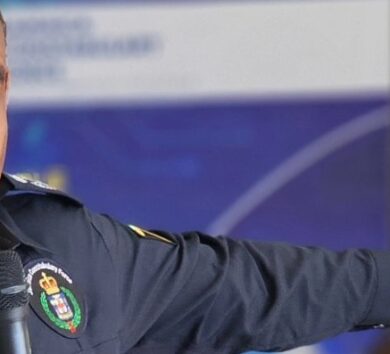
Comments